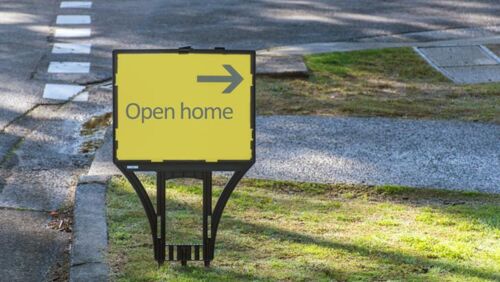Unattainable deposits push first homes out of reach
By Tom Watson
Sluggish wage growth, less secure work and a rapid rise in property prices have made it increasingly difficult for younger Australians to enter the housing market, new research has revealed.
Produced by researchers from Curtin University and the University of Sydney for the Australian Housing and Urban Research Institute (AHURI), the Pathways to home ownership in an age of uncertainty report dug into the financial lives of prospective and recent home buyers aged 25 to 34 in Perth and Sydney in order to investigate how they were approaching and achieving the goal of ownership.
Among the findings the report noted that while many younger buyers would be in a position to service the repayments on a mortgage, putting together the money needed for a deposit in the first place was proving to be a bridge too far.
"I think for a lot of young adults, it's really the deposit that's holding them back. Deposits now are the equivalent of entire home loans a generation ago, so they really are a massive hurdle," says Dr Michael Fotheringham, AHURI managing director.
The sharp increase is even evident over a shorter timeframe, where the cost of a 20% deposit - based on the Australian Bureau of Statistics' mean dwelling price - has more than doubled in New South Wales and Tasmania in the past 10 years.
"A lot of younger households that are paying rent could be paying that towards a mortgage if they had the big deposit to get in in the first place - that's the big barrier," says Fotheringham.
Family financial support key
Rising property prices have naturally driven up deposit costs, but the research also revealed that factors like relatively low wage growth - especially when compared to price growth - and more precarious employment for younger Australians in recent years have exacerbated affordability issues.
"Housing prices have grown far more quickly than our wages have, and the result is that deposit requirements are well into the hundreds of thousands of dollars which is clearly a massive barrier, and the serviceability of a loan overall is much more challenging than it used to be," Fotheringham says.
It appears that the struggles faced by prospective younger buyers don't come down to hackneyed spending stereotypes, such as indulging on avocado on toast, though.
"What this report puts to bed is that it's not about excessive lifestyle spending. In fact, many young households looking for home ownership are incredibly frugal with their lifestyle and are working second jobs and looking for really creative ways to cut spending with an eye of getting into ownership," says Fotheringham.
Ultimately, the report found that "the capacity to save a deposit through employment alone was being challenged", meaning that only a small number of prospective buyers are able to save up enough themselves to cover a deposit.
Instead, financial support from parents and families - such as gifting a deposit, going guarantor on a home loan, or subsiding rental costs - was the decisive factor in first home ownership.
"One of the most important saving strategies to emerge was living with parents or in properties owned by parents," says Dr Laurence Troy, a senior lecturer at the University of Sydney and one of the report's authors.
"This meant a combination of little or no rent, utilities and food, and reduced spending in all major necessity categories. As a result, people can plan better and a larger share of income could be diverted to savings, and this also enabled lower income earners to consistently save.
"However, if only those with families who are able to provide support can do so, then those who don't have supportive family are potentially locked-out of home ownership altogether. And by extension, locked-out of the important wealth building dimension that housing provides, particularly into retirement."
Existing initiatives and future reform
If one of the largest barriers to home ownership is putting together a deposit, what role do government-funded initiatives like the various deposit guarantee schemes and first-time buyer concessions play in helping younger Australians negotiating that hurdle then?
While Fotheringham says there's not a lot of data on the more recent deposit schemes, he argues that demand-side initiatives like grants tend to help inflate prices for first-time borrowers.
"Generally with the first home buyer grants, if a first home buyer has $5,000 extra in their pocket and so does the person next to them at the auction, then the price will just goes up and up. So they're really good for vendors because they increase prices, but in terms of actually giving first home buyers a competitive advantage, they don't really work.
"I guess the intent is to level the playing field with investors, but there are other ways to do that including putting constraints on or taking away the concessions that investors receive - the classic being negative gearing concessions."
Rather than concentrating on schemes and concessions that "do not address the root of the problem", the AHURI report suggests that government policy aimed at improving the availability and affordability of housing in Australia will need to tackle broader structural issues.
Included in that is the growing gulf in housing opportunities available to renters, who are increasingly locked out of home ownership, and multiple property owners who are more easily able to transfer wealth, and facilitate home purchases, across generations.
Fotheringham believes that the federal government's National Housing Accord, which was announced last October, does offer some hope though.
"The language around the Housing Accord is spot on because we do need to all be moving in the same direction and coordinating to address what is a generational challenge.
"The configuration is there, but it's a matter of getting the details right. There's an opportunity now through the Accord and the development of a coherent national housing plan to start to get this right."
Get stories like this in our newsletters.



